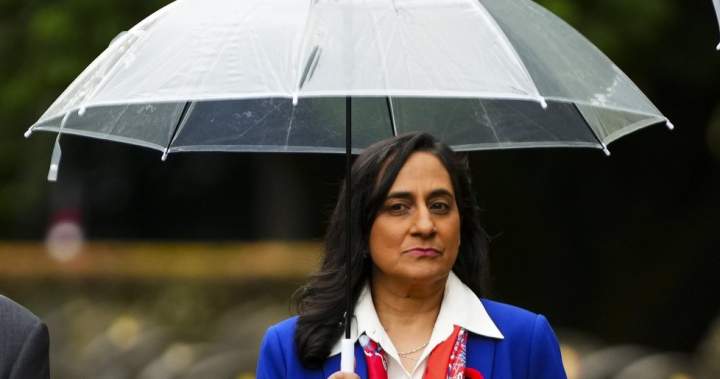The trucks are positioned at Egypt’s border, their cargo holds packed with Canadian aid for Gaza’s desperate population, yet they remain in diplomatic limbo—waiting for clearance that seems perpetually just beyond reach.
“These are critical supplies that can save lives,” Defense Minister Anita Anand told me during our call yesterday, her frustration evident even through the crackling international connection. “Seventeen trucks of Canadian humanitarian assistance have been staged and ready to enter Gaza for more than a week.”
The aid convoy represents Canada’s modest attempt to address what the United Nations has called a humanitarian catastrophe of unprecedented proportions. Since Israel’s military operations began following the October 7 Hamas attacks, Gaza’s infrastructure has collapsed, leaving over 90% of its 2.3 million residents internally displaced, according to the UN Relief and Works Agency.
What makes this situation particularly maddening for Canadian officials is the uncertain timeline. The trucks sit loaded with $1.5 million worth of supplies—medical equipment, food, shelter materials—purchased through Canada’s arrangement with the UN World Food Programme. Yet the necessary approvals from Israeli authorities remain elusive.
During my years covering conflicts from Iraq to Ukraine, I’ve witnessed the cruel arithmetic of aid logistics: delay often equals death. Gaza’s Health Ministry reports that more than 35,000 Palestinians have been killed in the conflict, while hospitals function at minimal capacity with severe shortages of basic supplies.
“Every day these trucks don’t move means more preventable suffering,” Dr. Samia Halileh, a Palestinian public health expert I spoke with at Al-Quds University, explained. “Children are dying not just from bombs, but from treatable conditions because the medical system has collapsed.”
Canada’s experience highlights the broader challenge facing humanitarian organizations. The UN reports that aid entry has been severely restricted, with daily truck arrivals falling far below the pre-war average of 500 trucks needed to sustain Gaza’s population. Recent weeks have seen days when fewer than 100 trucks entered.
When questioned about the delays, Minister Anand pointed to the complex approval process involving Israeli authorities, who control access points and maintain strict security protocols. While she declined to directly criticize Israel, her carefully chosen words revealed growing impatience with the process.
“We continue to press through diplomatic channels for these essential supplies to reach those in desperate need,” Anand stated. “But it’s clear the current system is not functioning adequately to address the scale of suffering.”
The aid standoff comes as Canada navigates a delicate diplomatic position. Prime Minister Justin Trudeau has faced criticism both for not condemning Israel strongly enough and for not supporting Israel unconditionally. This middle path has left Canadian officials pushing for humanitarian access while maintaining relations with Israel.
The situation mirrors similar challenges faced by American aid efforts. Last month, the Biden administration began airdropping supplies and constructed a temporary pier for maritime deliveries—tacit acknowledgment that land routes remain unreliable despite Israeli assurances of cooperation.
“This isn’t just about trucks,” explained Samantha Power, head of USAID, during a recent press conference I attended in Washington. “This is about whether the international humanitarian system can function in the face of political obstacles.”
For Gazans, the waiting game has dire consequences. Fatima Al-Najjar, a mother of four in Deir al-Balah whom I interviewed via WhatsApp last week, described boiling contaminated water and rationing flour to make flat bread for her children.
“We hear about aid coming, but we see nothing,” she said. “My youngest is sick, but the clinic has no medicine. What are we supposed to do?”
Canada’s experience reflects a broader pattern of humanitarian assistance being caught in political crosscurrents. According to Médecins Sans Frontières, their medical teams have faced “impossible choices” due to supply shortages, while the World Food Programme warns that famine conditions are spreading throughout Gaza.
For now, Canada’s trucks remain in Egypt, their contents untouched by those who need them most. Minister Anand promised to continue diplomatic efforts, but acknowledged the frustrating reality: “We have the supplies, we have the funding, we have the will—what we don’t have is the access.”
As darkness falls over the border crossing, the trucks sit as silent monuments to good intentions stalled by geopolitical complications—a small but telling symbol of the international community’s struggle to address one of the world’s most acute humanitarian emergencies.






